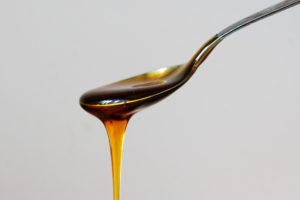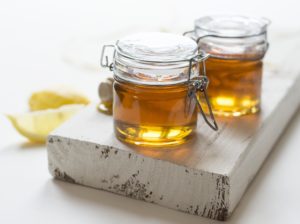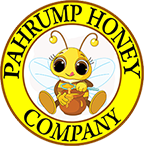
10 Health Benefits of Honey
This magical concoction created by flower nectar and the digestive tract of a bee has been used as a medicine and natural remedy for thousands of years. Scientific studies confirm this ancient healer wisdom. Besides the importance of bees as a pollinator of food crops, their honey is an important natural source of sweetness and is also good for treating or preventing certain conditions. Here are ten health benefits of honey…
1. Anti-Microbial
Honey has been long used to treat cuts and burns in traditional medicine. A lack of the scientific method at that time meant that honey’s usefulness was recognized through trial and error. The longevity of its use and the variety of cultures contained within honey should be some indication of its potency.
According to a study entitled, ‘Honey: A Reservoir for Microorganisms and an Inhibitory Agent for Microbes’, published by African Health Science and the National Institutes of Health, honey has properties that inhibit around 60-species of bacteria. Honey has been proved effective against Staph and MRSA (Methicillin-Resistant Staphylococcus Aureu) infections.
2. Anti-Inflammatory
Beyond traditional medicine, the Russians and the Germans used honey extensively during WWI to treat ulcers, boils, and other inflammatory conditions. Its use for treating ulceration’s following carcinoma surgeries is also well documented.
In a Nepal Journal of Neuroscience article published in 2006, doctors treated patients suffering from multiple sclerosis somewhat effectively with honey. Unlike other anti-inflammatory medicines, such as corticosteroids, honey doesn’t have the dangerous side effects.
3. Insulin Production in Diabetics
There is no substitute for monitoring blood sugar levels and insulin injections for individuals with type 1 or type 2 diabetes. However, honey has shown to have value. It can be useful as a cane sugar replacement in coffee, tea, and other applications where sweetness is desired.
In 2004, the Journal of Medical Foods published an article that linked honey to decreased blood glucose levels, improve lipid profiles, and stimulated insulin secretion. Honey has also been associated with a lower glycemic index than sucrose or glucose in normal diabetes.
4. Anti-Fungal
The prevalence and frequency of Candida infections worldwide is growing, with infections proving to have a high resistance to conventional drugs. Honey may be the answer. A 2006 article published in Medical Mycology noted that honey has significant anti-fungal properties against a variety of Candida species.
It may be a sticky solution to your problem, but honey is effective in treating dandruff, athlete’s’ foot, and dermatitis. The only side effect to using honey as a topical application—you may have to purchase new socks or a new hat.
5. Treatment for Certain Eye Conditions
Once again, the prospect of using honey to treat ocular problems seems a little far fetched and messy. However, the sticky substance proves a very common treatment worldwide for conditions—such as conjunctivitis, keratitis, corneal injuries, chemical, and thermal burns.
A study published in the Kathmandu University Medical Journal, entitled ‘Honey—A Remedy Rediscovered and its Therapeutic Utility,’ measured the effects of a topical honey ointment given to 102-patients with non-responsive eye disorders. The result was improvements in 85-percent of patients and no disease progression in the remaining 15-percent.
6. Cough Suppressant
One folk remedy for coughs and colds that has continuously survived the modern age is a hot toddy (with or without the whiskey). The health benefits of the concoction—which contains vitamin c and the antioxidant benefits of tea—are known and well documented. However, honey alone has proven an effective treatment for coughs.
According to the Mayo Clinic, a study conducted with children 2-years-old and up showed honey was effective at improving sleep and suppressing nighttime coughs. This explains why honey is common in over-the-counter cough medications. Although, the Clinic notes that you should never give honey to a child under the age of 1-years-old due to the risk of infant botulism.
7. Cancer Prevention
Research continues on the benefits of honey in the fight against cancer. However, preliminary results indicate that the sticky stuff may be an important weapon. Honey naturally contains the same compounds used in expensive, artificially produced drugs for cancer treatment.
As noted in the book, Honey Revolution, by Dr. Ron Fessenden, honey contains floral-flavonoids, which have caught the attention of the pharmaceutical industry. These compounds have been effective in removing free radicals and increasing the body’s immune defenses.
 8. Anti-Viral
8. Anti-Viral
Genital herpes outbreaks can be embarrassing as well as painful. Recent research published in the Journal of Medical Foods indicates that the outbreak of recurrent lesions can be treated and managed with a topical honey solution.
Findings from the study indicate that honey is just as effective as prescription treatments. Science tells us that honey also inhibits the growth of the rubella virus. This means there’s a lot of potential for honey to be used as an effective medicine for virus treatment in the near future.
9. Prevention of Cardiovascular Disease
Honey’s effectiveness as an anti-inflammatory and –radical eradicator, makes it a natural tool in cardiovascular disease prevention. But according to a 2008 article from Scientific World Journal, honey can also be used to reduce cholesterol in overweight patients with increased risk.
The study administered 70-grams of honey a day to patients over a duration of 30-days. Findings showed that natural honey not only reduced overall cholesterol, but also lowered e c-reactive proteins produced by the liver. E c-reactive proteins have been linked to several heart conditions.
10. Oral Hygiene
If the mounting benefits of honey are not enough to convince you to get sticky—additional scientific evidence suggests that honey also strengthens tooth enamel. In fact the Journal of Oral Rehabilitation claims honey is an effective medicine used for tooth extraction pain and in the treatment of oral infections.
Good oral hygiene starts with adequate brushing and flossing, as well as regular visits to the dentist. But compared to the effect of sugar cane and high fructose corn syrup on your enamel, honey seems like an excellent alternative. So stick your fingers in the honey pot for your teeth—and for your overall health and wellness.
activebeat.co
